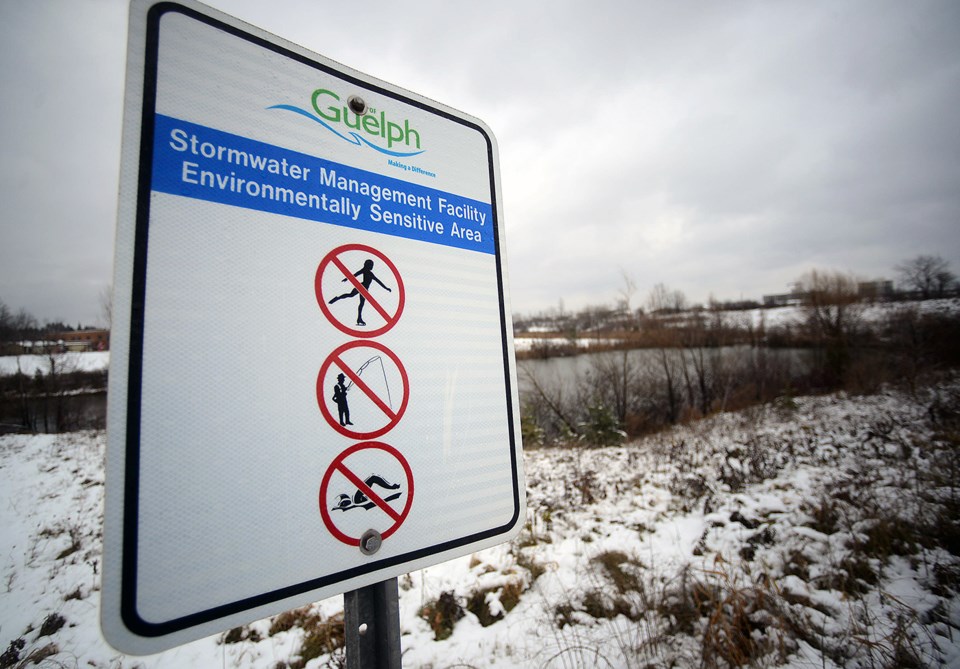Around the City Council horseshoe it's often referred to as the "non-sexy stuff."
Stormwater management isn't something residents of Guelph think about very often.
It's mostly hidden, relatively boring and operates with little attention, but it plays an important role in keeping Guelph free of flooding and minimizes the amount of pollution finding its way to our rivers and streams.
There are 118 stormwater ponds in Guelph and they all need to be maintained, inspected and dredged every 15 to 25 years. There is also 477 kilometres of storm sewer pipes.
"As rainwater flows over hard surfaces throughout the city, the water collects up sediment particulate. through catch basins and pipes then flows into the ponds," explains Rachel Ellerman, an engineering technologist with the city.
"If we didn't have ponds, a lot of the sediment and dirt would be going straight into our streams, so that's another problem for aquatic wildlife," Ellerman said.
Starting Jan. 1 the way the city funds its strormwater operational and capital needs will change.
The city is working to inform the public of the changes and help them understand just what exactly stormwater management is.
It's defined as rainwater, melted snow or water that runs off roofs, driveways and roads rather than soaking into the ground.
Much of it still has to be channelled and cleaned before exiting into rivers and streams.
Stormwater costs used to be part of people's annual property tax bill. But starting in 2017 the cost switches to people's hydro bills, the way that the cost of water and waste water does.
The result will see the amount collected go from $2.3 million currently to $6.4 million by 2021.
Those funds cover stormwater operations, upgrades and maintenance.
"It's a transition from a tax-based service to a non-tax-based service, similar to water and waste water," said Arun Hindupur, an infrastructure planning engineer with the city.
The switch will help maintain a dedicated, predictable and sustainable funding source to address stormwater needs moving forward, he said.
This does not mean that a new fee is being created. The strormwater cost that used to be included in the base city budget has been removed from there and put on hydro bills.
There is no double dipping. Property taxes are slightly lower because the stormwater fee was removed.
But it is going up.
In 2016 the stormwater fee was $2.36 a month. The fee that will show up on hydro bills in 2017 is $4 a month.
The city estimates there has been a $4 million annual gap in what funding is needed and what is actually collected.
Ellerman said the city is currently looking at a possible stormwater credit program for properties that minimize the amount of stormwater runoff, through things like water recycling or permeable parking surfaces.
There are also pipes, catch basins and other infrastructure capital needs that need upkeep and expansion over time.
